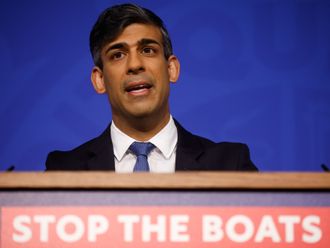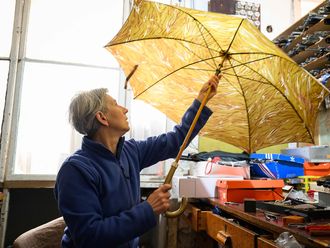Inverness, Scotland: High on a hillside not far from here, a stone cairn marks the spot of the last battle fought on Britain soil. At midday on April 16, 1746, some 2,000 Highlanders were cut down in a hail of shot and shell as they charged the neat battle lines of redcoats under the command of the Duke of Cumberland.
The short and sharp engagement was the final chapter of the Jacobite rebellion where the forces of Charles Edward Stuart — Bonnie Prince Charlie — with help from exiled Irish troops in service with France, were trying to regain control of Scotland and to ensure a Catholic monarch sat on the throne in Edinburgh. They failed.
Why the history lesson? In part, Thursday’s referendum will try to dissolve the Act of Union between Scotland and the rest of the United Kingdom — a bill that came into effect in 1707 — four decades before the Battle of Culloden.
The defeat of the Jacobite forces ended the military struggle for an independent Scotland and ensured that the clans of Scotland were largely broken up and dispersed to Upper Canada — the province of Nova Scotia means literally ‘New Scotland’ — and other corners of the globe. Gaelic as a language was banished while harsh property laws and penalties were imposed over unruly and dissenting Scots.
“In essence, what we’re going through today is the legacy of the failure of the Scots at Culloden,” explains James MacDougall, a local schoolteacher in Inverness. “The Act of Union of 1707 did not sit well with most Scots. It was a deal that was entered into hastily and Scotland was broken, economically from the Darien adventure and spiritually from years of wars based on loyalty to monarchs and religious obligations.”
He will be voting ‘no’ on Thursday.
“I do think that Scotland is better in the union,” he tells Gulf News. “We have much more in common with London than we do with Brussels and there are too many unanswered questions. What the ‘yes’ side are saying is ‘Look, trust us.’ That’s not good enough for me, I’m afraid. Not when there is such commonality between us.”
So is the referendum like that desperate Highland charge so long ago?
“Hardly,” he laughs. “I do think there’s an air of desperation about some of the campaign rhetoric in the past few days, though.”












